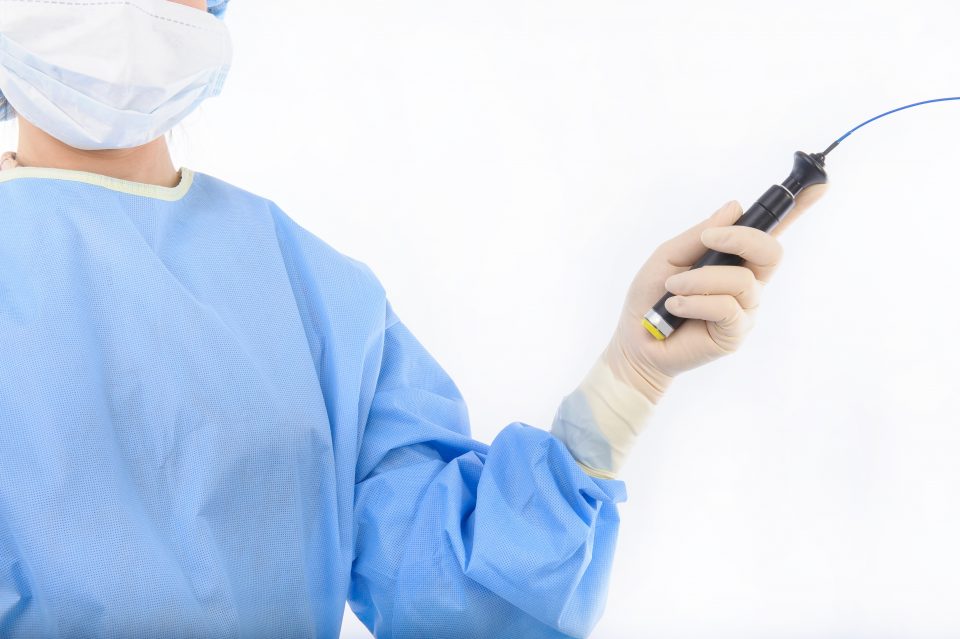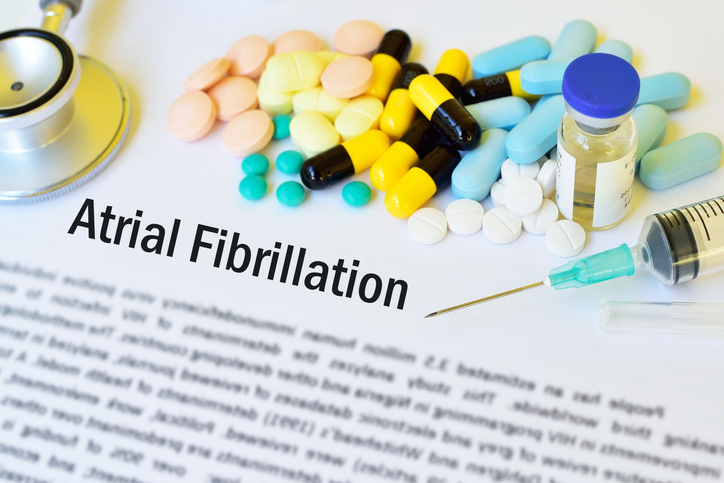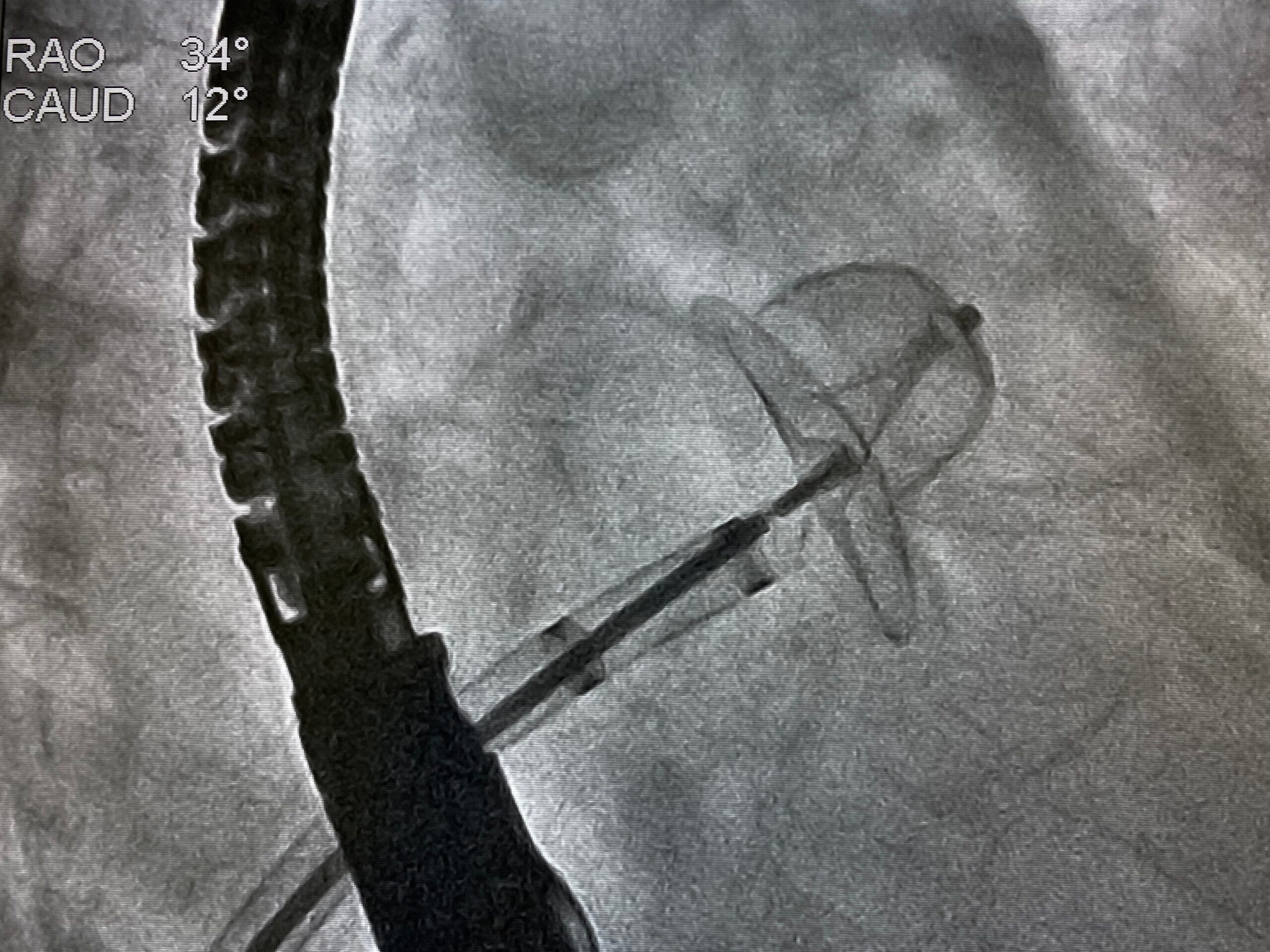
Among patients with symptomatic atrial fibrillation (AFib), catheter ablation led to significant improvements in quality of life (QOL) at 12 months compared with drug therapy. These findings were published in JAMA.
In this open-label randomized clinical study known as the Catheter Ablation Versus Antiarrhythmic Drug Therapy for Atrial Fibrillation (CABANA) trial, researchers enrolled 2,204 patients (average age, 68; 63% men; 43% with paroxysmal AFib; 57% with persistent AFib) from 126 centers in 10 countries with symptomatic AFib and at least one risk factor for stroke. Patients were recruited from November 2009 to April 2016, with follow-up concluding in December 2017. The study interventions included pulmonary vein isolation, with additional ablation procedures left to the discretion of the researchers, for the catheter group (n=1,108) and standard rhythm and/or rate-control drugs selected and overseen by researchers for the drug therapy group (n=1,096).
The main study outcome measures were prespecified co-primary QOL end points at 12 months, including the Atrial Fibrillation Effect on Quality of Life (AFEQT) summary score (range, 0-100, with zero indicating complete disability and 100 denoting no disability), and the Mayo AFib-Specific Symptom Inventory (MAFSI) frequency score (range, 0-40, with zero indicating no symptoms and 40 suggesting the more severe symptoms), and severity score (range, 0-30, with zero denoting no symptoms and 30 suggesting the most severe symptoms).
BREAKING: In the CABANA Trial, catheter ablation led to small but clinically and statistically significant improvements in quality of life at 12 months in patients with atrial fibrillation compared to drug therapy. https://t.co/o6HSJVBX9C #ACC19 #Afib pic.twitter.com/cGLrhDgrgj
— JAMA (@JAMA_current) March 15, 2019
In 2 randomized trials of ablation vs medical therapy for symptomatic atrial fibrillation, significant benefit for quality of lifehttps://t.co/e05Bo0ErP2 by @DanMarkMD et al
but not reduced mortality or disabling strokehttps://t.co/3KBKuKAlLX@JAMA_current #ACC19 pic.twitter.com/VIm9U3tZls— Eric Topol (@EricTopol) March 15, 2019
Catheter Ablation Favorable
According to the study’s findings, the mean AFEQT summary score was more favorable for catheter ablation group juxtaposed with the drug therapy group at 12 months (86.4 points vs. 80.9 points) (adjusted difference, 5.3 points [95% CI, 3.7 to 6.9]). The average MAFSI frequency score was also more favorable for the catheter ablation group compared to the drug therapy group at 12 months (6.4 points vs. 8.1 points; adjusted difference, -1.7 points; 95% CI, -2.3 to -1.2), and the average MAFSI severity score was better for the catheter ablation group than the drug therapy group at 12 months (5.0 points vs. 6.5 points; adjusted difference, -1.5 points; 95% CI, -2.0 to -1.1).
The #CABANA trial has been published – see for yourself!
effects on QOL and hard endpoints, problem with crossovers, etc– whats your take?#ACC19 #Cardiology #atrialfibrillation @ACCinTouch @ACCmediacenter https://t.co/k6DSsbb8u8https://t.co/dAeyBsO66F pic.twitter.com/056XbpY8su
— Konstantin Krychtiuk (@krychtiukmd) March 15, 2019
Congrats to @DanMarkMD @JonPicciniSr and others from @DCRINews @DukeMedSchool for publishing the single most illuminating study assessing impact of ablation on atrial fibrillation. Without research, all we have is darkness. Much more still to learn. https://t.co/SMTD3xWKpk
— Haider Warraich (@haiderwarraich) March 15, 2019
“Our study results complement what we have seen in the CABANA trial itself and suggest that ablation may be associated with a lower risk of cardiovascular events than medical therapy alone,” said Peter Noseworthy, MD, a Mayo Clinic cardiologist and lead researcher, in a press release about the study. “However, the benefit may be smaller in patients who would have been excluded from the trial. Trial eligibility criteria could serve as a guide for selecting patients who may more likely benefit from ablation for cardiovascular risk reduction.”
CABANA Quality of Life results published today in @JAMA_current @DCRINews @nih_nhlbi @MayoClinic Effect of Catheter Ablation vs Medical Therapy on Quality of Life in Patients With Atrial Fibrillation https://t.co/2KOY6bqHkO
— Daniel Mark (@DanMarkMD) March 15, 2019







 © 2025 Mashup Media, LLC, a Formedics Property. All Rights Reserved.
© 2025 Mashup Media, LLC, a Formedics Property. All Rights Reserved.